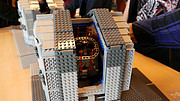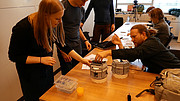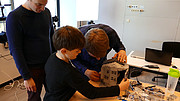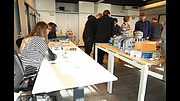Mededeling
Astronomen bouwen de meest geavanceerde sterrenwacht ter wereld na met LEGO®
29 juni 2017
Bij de bouw van de ESO-sterrenwacht op Paranal in Chili – een van de grootste en meest geavanceerde telescoopfaciliteiten ter wereld – waren enkele van de knapste wetenschappers en ingenieurs betrokken. En nu hebben de Nederlandse astronoom Frans Snik en een team van toegewijde helpers dat nog eens dunnetjes overgedaan. Zij hebben een uniek LEGO®-model gemaakt van het complete Paranal-platform, compleet met verrassend gedetailleerde replica’s van de vier 8,2-meter VLT Unit Telescopes (UT) en de vier ondersteunende 1,8-meter Auxiliary Telescopes [1].
Dit verbazingwekkende eenmalige model is overgedragen aan ESO, en te bezichtigen in het ESO-hoofdkwartier in Garching, Duitsland. Zodra in het voorjaar van 2018 het ESO Supernova planetarium & bezoekerscentrum in het ESO-hoofdkwartier is geopend, zal het model daar een plek krijgen.
Het model van het Paranal-platform, op een schaal van ongeveer 1:150, omvat niet alleen de verschillende VLT-telescopen en hun behuizingen: ook alle instrumenten die bij de echte VLT worden gebruikt zijn aanwezig. Tevens zijn er nauwkeurige modellen van de VST, VISTA en het bedieningsgebouw. Elk van de 8,2-meter UT’s bestaat uit precies 3104 stukjes en voor het hele platform waren meer dan 25.000 afzonderlijke onderdelen nodig – plus de nodige tijd en geduld! De telescopen kunnen draaien en alle luiken en ventilatiegaten kunnen open en dicht. De vier Auxiliary Telescopes staan op rails en zijn, net als de echte telescopen, verplaatsbaar. En de VLTI-tunnels bieden plaats aan een werkende miniatuur interferometer die echte fringes (interferentiestrepen) kan produceren.
Het bouwen van een modeltelescoop is een uitstekende manier om inzicht te krijgen in de complexiteit van moderne astronomische instrumenten en iedereen met genoeg doorzettingsvermogen (en ongeveer 5000 euro op zak) kan zijn eigen versie van deze enorme telescopen bouwen. Frans Snik voorziet u graag van de noodzakelijke instructies.
En voor wie nog meer wil, is er ook een LEGO®-bouwschema beschikbaar voor ESO’s Extremely Large Telescope, die momenteel nabij Paranal in aanbouw is – op dezelfde schaal als het Paranal-model.
Noten
[1] Het LEGO®-Paranal begon zijn kleinschalige bestaan in 2014, toen Snik zijn eerste LEGO®-model van ESO’s Extremely Large Telescope (ELT) ontwierp en bouwde. Later bedacht hij ook een LEGO®-model van de 8,2-meter VLT Unit Telescopes.
Links
- LEGO®-bouwinstructie voor de VLT (PDF)
- LEGO®-bouwinstructie voor de ELT (PDF)
- Lijst van LEGO®-stenen voor het VLT-model: gebruik de gratis BrickStock- software om dit .bsx-bestand (7KB) te openen
- De lijst van LEGO®-stenen voor het ELT-model is hier te vinden
Contact
Frans Snik
Sterrewacht Leiden, Universiteit Leiden
Leiden, Nederland
Tel: +31 71 527 8431
E-mail: snik@strw.leidenuniv.nl
Richard Hook
ESO Public Information Officer
Garching bei München, Germany
Vast: +49 89 3200 6655
Mobiel: +49 151 1537 3591
E-mail: rhook@eso.org
Over de Mededeling
| Id: | ann17038 |
Our use of Cookies
We use cookies that are essential for accessing our websites and using our services. We also use cookies to analyse, measure and improve our websites’ performance, to enable content sharing via social media and to display media content hosted on third-party platforms.
ESO Cookies Policy
The European Organisation for Astronomical Research in the Southern Hemisphere (ESO) is the pre-eminent intergovernmental science and technology organisation in astronomy. It carries out an ambitious programme focused on the design, construction and operation of powerful ground-based observing facilities for astronomy.
This Cookies Policy is intended to provide clarity by outlining the cookies used on the ESO public websites, their functions, the options you have for controlling them, and the ways you can contact us for additional details.
What are cookies?
Cookies are small pieces of data stored on your device by websites you visit. They serve various purposes, such as remembering login credentials and preferences and enhance your browsing experience.
Categories of cookies we use
Essential cookies (always active): These cookies are strictly necessary for the proper functioning of our website. Without these cookies, the website cannot operate correctly, and certain services, such as logging in or accessing secure areas, may not be available; because they are essential for the website’s operation, they cannot be disabled.
Functional Cookies: These cookies enhance your browsing experience by enabling additional features and personalization, such as remembering your preferences and settings. While not strictly necessary for the website to function, they improve usability and convenience; these cookies are only placed if you provide your consent.
Analytics cookies: These cookies collect information about how visitors interact with our website, such as which pages are visited most often and how users navigate the site. This data helps us improve website performance, optimize content, and enhance the user experience; these cookies are only placed if you provide your consent. We use the following analytics cookies.
Matomo Cookies:
This website uses Matomo (formerly Piwik), an open source software which enables the statistical analysis of website visits. Matomo uses cookies (text files) which are saved on your computer and which allow us to analyze how you use our website. The website user information generated by the cookies will only be saved on the servers of our IT Department. We use this information to analyze www.eso.org visits and to prepare reports on website activities. These data will not be disclosed to third parties.
On behalf of ESO, Matomo will use this information for the purpose of evaluating your use of the website, compiling reports on website activity and providing other services relating to website activity and internet usage.
Matomo cookies settings:
Additional Third-party cookies on ESO websites: some of our pages display content from external providers, e.g. YouTube.
Such third-party services are outside of ESO control and may, at any time, change their terms of service, use of cookies, etc.
YouTube: Some videos on the ESO website are embedded from ESO’s official YouTube channel. We have enabled YouTube’s privacy-enhanced mode, meaning that no cookies are set unless the user actively clicks on the video to play it. Additionally, in this mode, YouTube does not store any personally identifiable cookie data for embedded video playbacks. For more details, please refer to YouTube’s embedding videos information page.
Cookies can also be classified based on the following elements.
Regarding the domain, there are:
- First-party cookies, set by the website you are currently visiting. They are stored by the same domain that you are browsing and are used to enhance your experience on that site;
- Third-party cookies, set by a domain other than the one you are currently visiting.
As for their duration, cookies can be:
- Browser-session cookies, which are deleted when the user closes the browser;
- Stored cookies, which stay on the user's device for a predetermined period of time.
How to manage cookies
Cookie settings: You can modify your cookie choices for the ESO webpages at any time by clicking on the link Cookie settings at the bottom of any page.
In your browser: If you wish to delete cookies or instruct your browser to delete or block cookies by default, please visit the help pages of your browser:
Please be aware that if you delete or decline cookies, certain functionalities of our website may be not be available and your browsing experience may be affected.
You can set most browsers to prevent any cookies being placed on your device, but you may then have to manually adjust some preferences every time you visit a site/page. And some services and functionalities may not work properly at all (e.g. profile logging-in, shop check out).
Updates to the ESO Cookies Policy
The ESO Cookies Policy may be subject to future updates, which will be made available on this page.
Additional information
For any queries related to cookies, please contact: pdprATesoDOTorg.
As ESO public webpages are managed by our Department of Communication, your questions will be dealt with the support of the said Department.
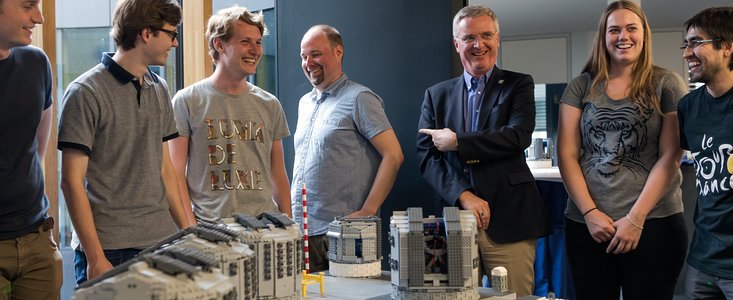

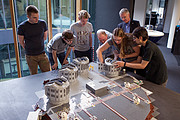
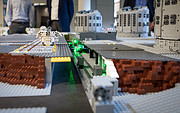
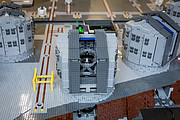
![ESOcast 114 Light: VLT LEGO model (4K UHD) [Engelstalig]](https://cdn.eso.org/videos/news/esocast114a.jpg)






